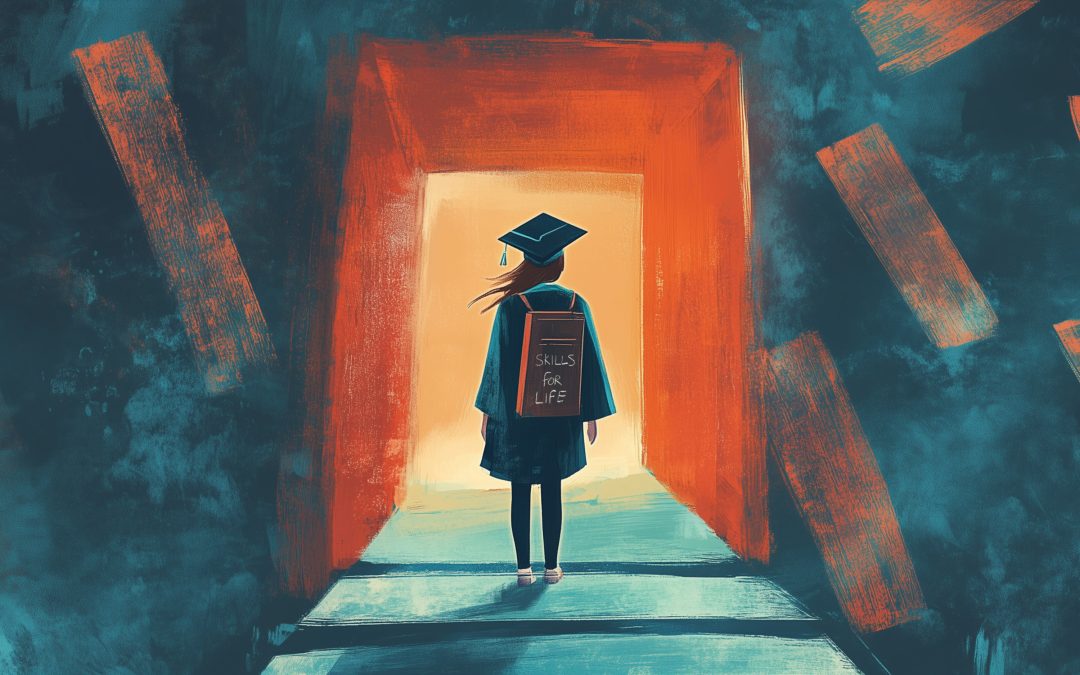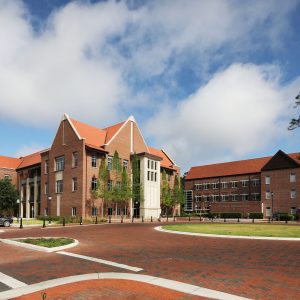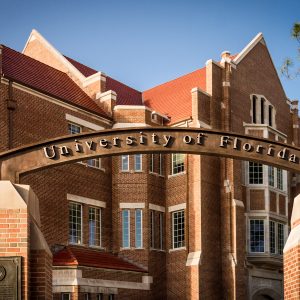The foundation for career readiness
Job searching is a skill - the Heavener School teaches it
Freshmen often arrive on the Warrington campus without a clear idea of what career they will enter after graduation. Almost half of incoming freshmen come in as general studies majors, unsure what kind of business they want to be involved in or sometimes even what skills they have that would make them good at business.
The Heavener School of Business leadership team, led by Assistant Dean and Director Erica Studer-Byrnes, has been aligning all student services to ensure the focus is on personal and professional development, preparing students to make the most important decisions about themselves and their career. This is the foundation of career readiness and a critical focus with the rapid evolution of the job market in modern times.
Once students know more about their personal and professional strengths, they’re better prepared to pursue a job in which they will excel.
“We see a lot of students that come to the business school because they’re good at math or business sounds like a stable and safe career choice,” Studer-Byrnes said. “They know they’re good at math and see business as a good, consistent way to earn a living. But many times that is the extent of the career information that students have in their first year. We are supporting the actual process of career development phases—helping students navigate different decision-making phases and learn about how to identify jobs that are a good fit for them. Our vision of career readiness starts with learning about yourself and the fields.”
Early in their time on campus, students learn about themselves through Heavener programming. They learn about their strengths, what truly interests them and how that translates to a career. Next, they learn about their employment opportunities in their desired industry and the skills required to earn those roles.
When students fuse a deeper knowledge about themselves with a deeper knowledge about what they want in a career, they begin to develop a roadmap to how they can grow to best fit into the job they want to fill.
“If they see they need a certain skill but theirs isn’t that strong, we help them develop a pathway to strengthen it,” Studer-Byrnes said.
Once the pathway is established heading into their middle years at UF, students focus on skill refinement. They’re more confident in their future career objectives and dive deeper into growing their skillset so that they’re ready when they begin internships or their future job.
They grow their knowledge in the classroom, and they gain hands-on experience through some classes. In one class, they could work on a team to solve a business project where they serve in an analyst role. They see firsthand how an analyst works and what’s expected of them, and that can help fill in more skill gaps that could pop up. Students also have many opportunities to go on trips to visit employers and learn first-hand about their career options.
“It’s a constant feedback loop of figuring out what you want to do and how you get there,” Studer-Byrnes said. “They’re seeing the skills they have now, developing those and other skills, and confirming that the industry they think they want is actually the industry they want.”
This career development is driven by Heavener’s eight competencies — critical thinking and problem solving, communication, global and cultural intelligence, leadership, teamwork and collaboration, professionalism and work ethic, career and self-development, and technical acumen.
“Those are the wayfinding tools that students will use to perform whatever role they’re in,” Studer-Byrnes said. “They’re the core skills needed to succeed in most professional roles, regardless of industry.”
Heavener students have always had resources to support their career development and facilitate their work values exploration. In recent years, the staff has prioritized more touchpoints with students, and instituted a formal career readiness curriculum that guides students through the career development process. Warrington Welcome, a one-credit introduction to business for first-year students, was already in place. But the increased courses and programming provide more communication and guidance from Heavener faculty and staff throughout the student journey.
During the 2023-24 academic year, Heavener students completed 69,828 activities toward their professional development, which can be completing a training series, attending a student organization meeting and many other options focused on professional development. Back in 2022-23, that number was only 25,000.
“Part of change is measuring what our students are doing,” Studer-Byrnes said. “They’re seeing an increased awareness, and it’s having an impact. It’s changing and strengthening their professional skills.”




